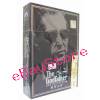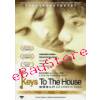
21Feb2026 - 08:10 46 AM
English
EM:Ten 十 DVD
Code : 9787880713336
| Price : | |
| Weight : | 250 g |
| Director : | 阿巴斯基亚罗斯塔米 , Abbas Kiarostami , |
| Genre : | Ancient Period , |
| Subtitle : | Chinese , |
| Language : | English , |
| Video Format : | NTSC , |
| Discs : | 1 |
| Region Code : | ALL , |
| Model : | DVD , |
The unnamed driver, played wonderfully by Mania Akbari, is a divorcee who has remarried. In the first journey, which begins with her son, Amin, getting into the car, we are plunged into conflict, as the young boy shouts at her, waves his hand, calls her an arsehole, and makes it very clear that he disapproves of her divorcing his father. Amin doesn’t like his stepfather, and wants to go and live with his father. He calls his mother selfish, and berates her for claiming his father was a drug addict. She tries to explain that in this “shit” country, women don’t have any rights, and she had to tell the court his father was an addict in order to get the divorce. She talks about how a person can only belong to themselves, and the need to love yourself before you can love another. This is a theme she will return to on other journeys. The son tries to cover his ears, shout her down, and threatens to throw his bag out the car window. If parents in the West think their kids don’t respect them, they should take a look at this film. In some respects, the viewer can’t help wondering if this young boy is just another male chauvinist in the making, egged on by his culture. But he’s not an unsympathetic character, and as the film goes on, we see how strong and opinionated his mother is with other people, even dishing out unsympathetic advice to a weeping woman. She can’t be the stay-at-home mother who’s always there for him. She’s not the type. He resents this, and thinks she’s a bad mother.
The drama is shot entirely from a digital camera on the dash board. No film crew are present. Sometimes the camera focuses solely on one person - the driver or her passenger. Other times it cuts back and forth so we see both. On the first journey, we never see the driver, only the boy. The actors are completely unselfconscious and natural. The viewer hence is like an eavesdropper, looking into other lives.
Later journeys follow the driver with her sister, then an old woman on her way to a mausoleum. This elderly woman hardly shuts up as she tells of how she has given up her possessions, gone on pilgrimages and goes to the mausoleum to pray three times a day. She talks about various saints and shows the driver her rosary.
On another journey, it’s night in Tehran. A prostitute has mistakenly got into the car, thinking the driver was a man. The driver won’t stop to let her out, and is brimming with curiosity, wanting to ask her about her work and life. “Pretend I’m a man,” she tells the giggling, sniggering girl. “I’m not working in that field yet,” the girl laughs. But the driver persists, asking her about her life, and why she does what she does. The girl claims to like her work. She points out that marriage too is an exchange that involves sex. “You’re the wholesalers. We’re the retailers,” she claims. This conversation is one of the most revealing in the entire film. We never see this girl’s face. What we do see is her figure from the back, through the windscreen, as she goes off to find another punter. She’s wearing a head scarf and is dressed modestly.
The son appears again in several sections of the film, and we see the changes in their relationship. He’s living with his father now. But it’s clear from their conversations in the car that there’s still some tension between mother and son. The two of them are able to joke more about his father getting a new wife. This wife, the driver thinks, will be obedient and submissive, always in the house cooking and cleaning.
A young woman from a previous journey is picked up again. She wears her headscarf tight. When she loosens it, we see her shaved head, and she finally takes the scarf off. As the driver points out, she looks even better with her head shaved. They talk about why she did it, and it’s one of the more moving segments of the film, with first-class acting, though it never seems like acting. Then the son is back for the last journey.
The ten sections appear as a countdown from 10 to 1. By the end, the driver seems to have reconciled herself with her son’s move to his father’s. If she hasn’t found complete peace of mind, she’s moved on from where she was. The viewer too has moved on, from vague stereotyped ideas about life in Iran and other Muslim countries to a clearer sense of the things different societies have in common. The driver’s plight, as a woman, is not so different from that of Western mothers who try to balance their different roles with a working life. Though her country gives her even fewer rights, her day-to-day life is not so different from a European’s. She’s smart and sophisticated, and the story might have been somewhat different if it had been told from the perspective of a poorer woman, with many children, living in a more isolated part of the country. Her self-help philosophies based on loving yourself are, if anything, more important to her than religion, which she doesn’t talk about much. She’s made compromises however. When questioned by the prostitute, it becomes clear that her new marriage is based on more practical considerations like friendship and companionship, rather than romantic illusions. 十:六个女人感情生活的十种结果。十,伊朗电影大师阿巴斯最新的一部电影,聚焦在德黑兰一个女出租司机和他车里的乘客的十组对话上。她和她的小儿子、被抛弃的人、妓女、去祈祷的女人还有其他一些人交流,生活与情感的火花从这些很少被听到的女人的声音中迸发出来。
The drama is shot entirely from a digital camera on the dash board. No film crew are present. Sometimes the camera focuses solely on one person - the driver or her passenger. Other times it cuts back and forth so we see both. On the first journey, we never see the driver, only the boy. The actors are completely unselfconscious and natural. The viewer hence is like an eavesdropper, looking into other lives.
Later journeys follow the driver with her sister, then an old woman on her way to a mausoleum. This elderly woman hardly shuts up as she tells of how she has given up her possessions, gone on pilgrimages and goes to the mausoleum to pray three times a day. She talks about various saints and shows the driver her rosary.
On another journey, it’s night in Tehran. A prostitute has mistakenly got into the car, thinking the driver was a man. The driver won’t stop to let her out, and is brimming with curiosity, wanting to ask her about her work and life. “Pretend I’m a man,” she tells the giggling, sniggering girl. “I’m not working in that field yet,” the girl laughs. But the driver persists, asking her about her life, and why she does what she does. The girl claims to like her work. She points out that marriage too is an exchange that involves sex. “You’re the wholesalers. We’re the retailers,” she claims. This conversation is one of the most revealing in the entire film. We never see this girl’s face. What we do see is her figure from the back, through the windscreen, as she goes off to find another punter. She’s wearing a head scarf and is dressed modestly.
The son appears again in several sections of the film, and we see the changes in their relationship. He’s living with his father now. But it’s clear from their conversations in the car that there’s still some tension between mother and son. The two of them are able to joke more about his father getting a new wife. This wife, the driver thinks, will be obedient and submissive, always in the house cooking and cleaning.
A young woman from a previous journey is picked up again. She wears her headscarf tight. When she loosens it, we see her shaved head, and she finally takes the scarf off. As the driver points out, she looks even better with her head shaved. They talk about why she did it, and it’s one of the more moving segments of the film, with first-class acting, though it never seems like acting. Then the son is back for the last journey.
The ten sections appear as a countdown from 10 to 1. By the end, the driver seems to have reconciled herself with her son’s move to his father’s. If she hasn’t found complete peace of mind, she’s moved on from where she was. The viewer too has moved on, from vague stereotyped ideas about life in Iran and other Muslim countries to a clearer sense of the things different societies have in common. The driver’s plight, as a woman, is not so different from that of Western mothers who try to balance their different roles with a working life. Though her country gives her even fewer rights, her day-to-day life is not so different from a European’s. She’s smart and sophisticated, and the story might have been somewhat different if it had been told from the perspective of a poorer woman, with many children, living in a more isolated part of the country. Her self-help philosophies based on loving yourself are, if anything, more important to her than religion, which she doesn’t talk about much. She’s made compromises however. When questioned by the prostitute, it becomes clear that her new marriage is based on more practical considerations like friendship and companionship, rather than romantic illusions. 十:六个女人感情生活的十种结果。十,伊朗电影大师阿巴斯最新的一部电影,聚焦在德黑兰一个女出租司机和他车里的乘客的十组对话上。她和她的小儿子、被抛弃的人、妓女、去祈祷的女人还有其他一些人交流,生活与情感的火花从这些很少被听到的女人的声音中迸发出来。






















